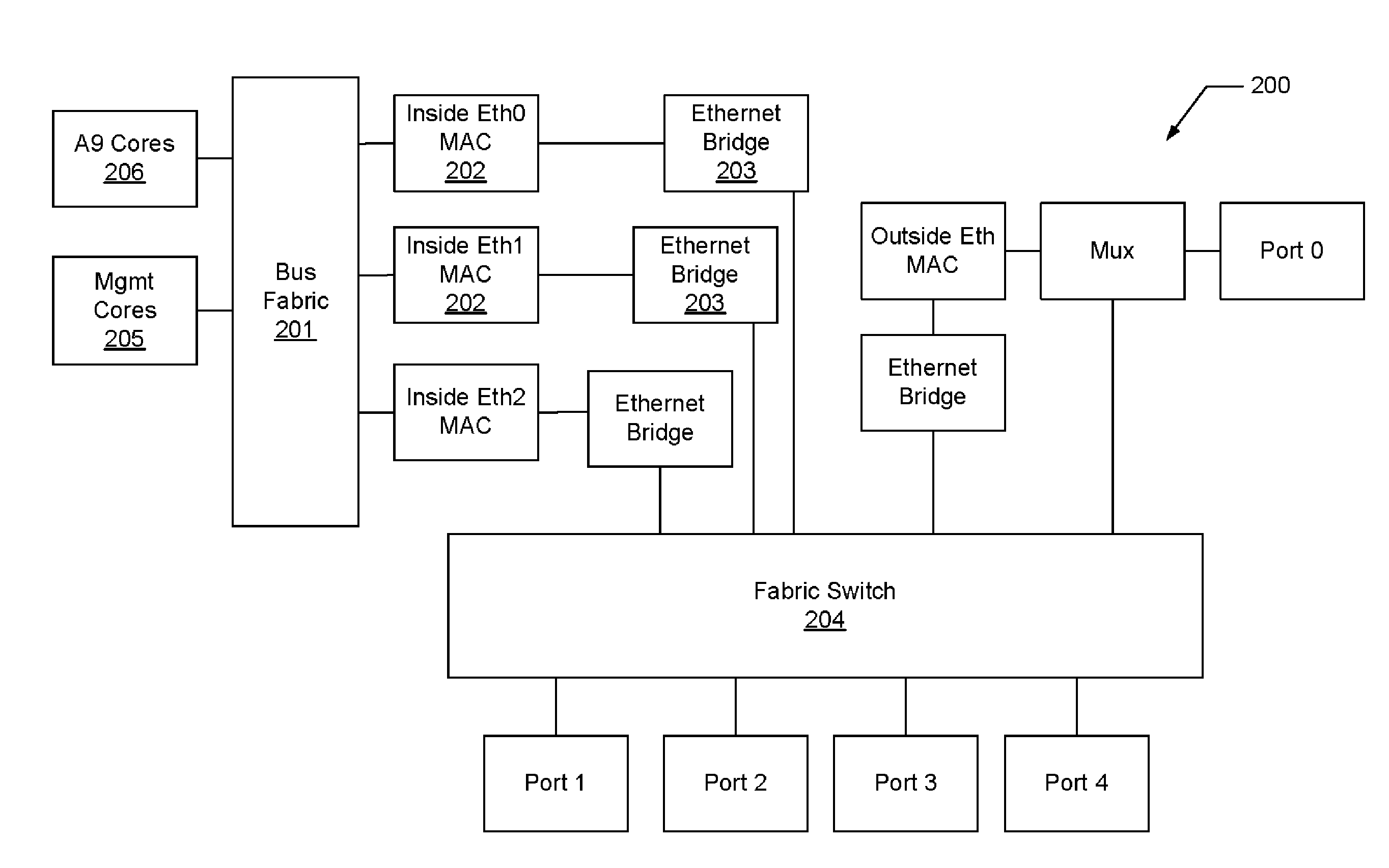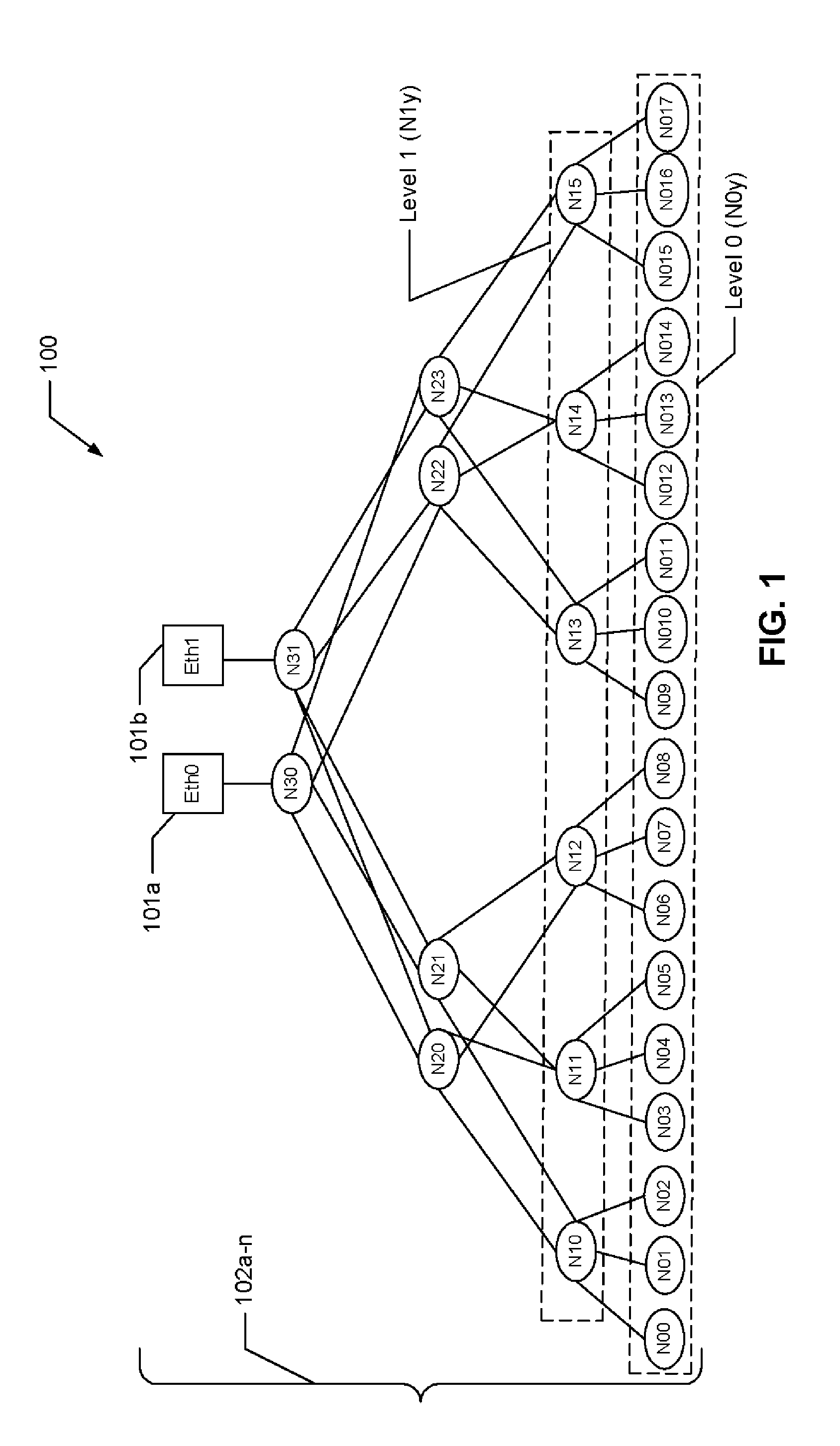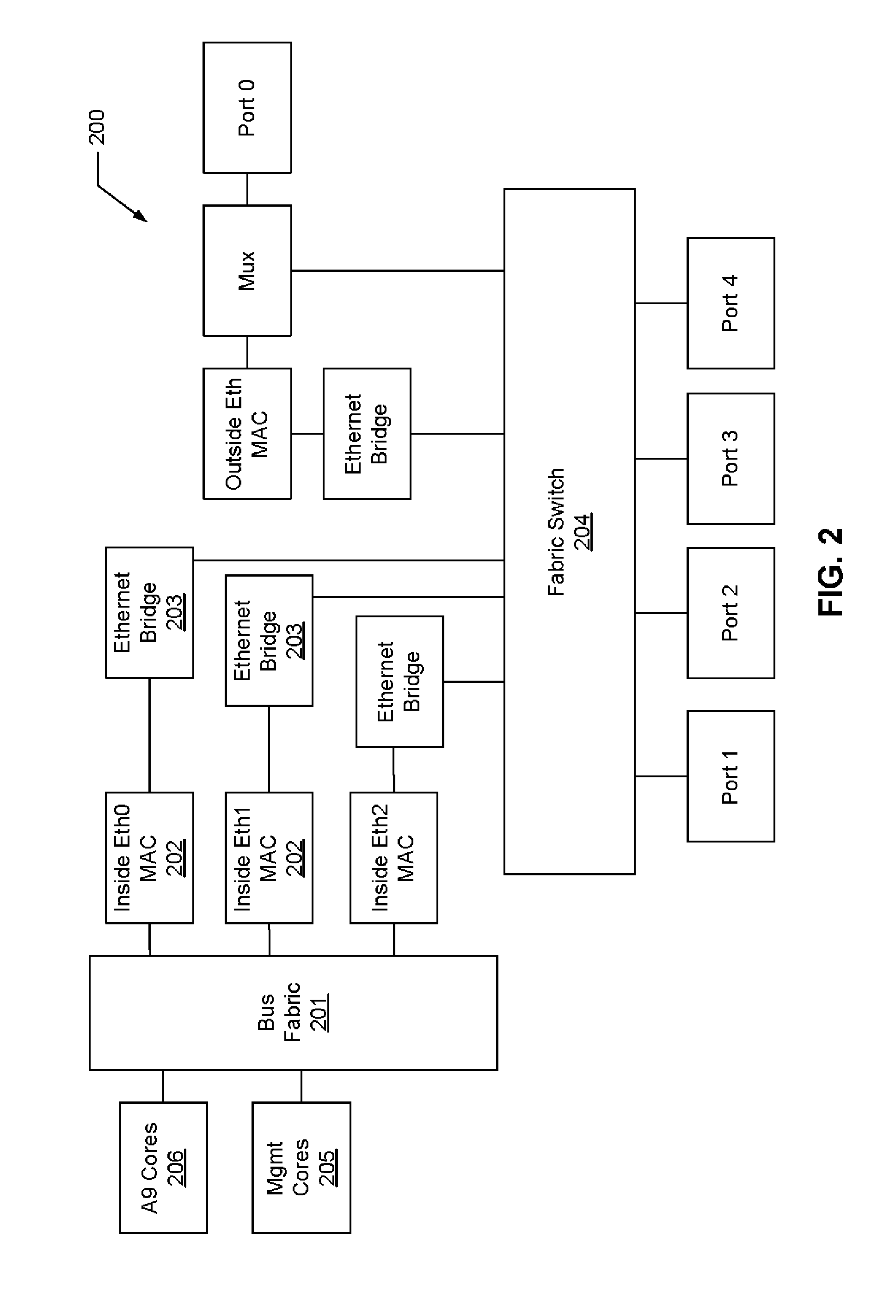System and method for using a multi-protocol fabric module across a distributed server interconnect fabric
a fabric module and fabric technology, applied in the field of multi-protocol fabric modules, can solve the problems of deficient shared nothing clusters, and achieve the effects of power optimization, performance extension, and functionality
- Summary
- Abstract
- Description
- Claims
- Application Information
AI Technical Summary
Benefits of technology
Problems solved by technology
Method used
Image
Examples
example 1
Distributed One-Sided Cache Coherent Shared Memory Across the Fabric
[0058]In FIG. 1, one or more of the compute nodes could constitute servers, and the fabric connects two or more servers. The ability to open up memory sharing windows in another server across the fabric enables a wide-range of new capabilities that are not possible in traditional “shared nothing” clusters. In this example, the form that a load or store bus transaction issued by Server Node A is targeting a physical address in Server Node B. Such bus transactions may originate from any bus master in Node A, including processors, I / O bus masters (such as a SATA controller), or a DMA engine.
[0059]FIG. 4 illustrates the first stage of a remote shared memory access transaction using the Remote Bus Personality portion of the module of FIG. 3. As shown in FIG. 4, a bus master on Node A issues a load or store transaction to a range of physical addresses mapped to the Remote Bus Personality portion The transaction appears as...
example 2
Remote Bus Personality Module—Remote Interrupts
[0064]In many SOC bus infrastructures, interrupts are individual lines that feed into an interrupt controller for the processor(s) such as the Remote Interrupt Manager 303 of FIG. 3. These individual interrupt lines are sometimes OR'd with each other to map multiple interrupt sources to a single interrupt line.
[0065]For example, if server A (such as Node N30 of FIG. 1) processor generates an interrupt on server B (such as Node N14 of FIG. 1): First, Server A writes to a remote CSR (control status register) on server B which maps to the requested interrupt, such as the an interrupt line of Interrupt Manager 303 of FIG. 3. The interrupt line is made active and interrupts processor 307 on server B.
[0066]As another example, an I / O interrupt on server A can be reflected to an interrupt on server B. An I / O controller on server A (like a SATA controller) raises an interrupt line that is being monitored by the Remote Interrupt Manager 303, FIG....
example 3
Remote Address Translation and Security
[0067]Referring to FIG. 3, block 314 is a management CPU core (See also Mgmt Core 205 of FIG. 2). This management CPU 314 is a key part of maintaining fabric security for remote bus transactions. The management CPU 314 maintains multi-node fabric transaction security on both sides of the transaction.
[0068]Each Remote Bus Personality processor 307 is allocated a range of addresses in IPA space. An exemplary process for the secure mapping of an address range from Server B into Server A's address space is as follows.[0069]1. Main OS processor on Server A (block 312 in FIG. 3) sends a mapping request of tuple (node #, physical address in node #'s address space, and window length) to local management processor.[0070]2. Management CPU 314 on Server A has the ability to accept or deny the remote mapping request. Upon local acceptance, management CPU on server A sends a secure management request with the remote mapping request to management CPU 314 on ...
PUM
 Login to View More
Login to View More Abstract
Description
Claims
Application Information
 Login to View More
Login to View More - R&D
- Intellectual Property
- Life Sciences
- Materials
- Tech Scout
- Unparalleled Data Quality
- Higher Quality Content
- 60% Fewer Hallucinations
Browse by: Latest US Patents, China's latest patents, Technical Efficacy Thesaurus, Application Domain, Technology Topic, Popular Technical Reports.
© 2025 PatSnap. All rights reserved.Legal|Privacy policy|Modern Slavery Act Transparency Statement|Sitemap|About US| Contact US: help@patsnap.com



